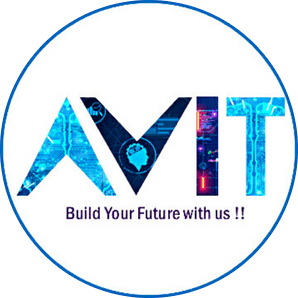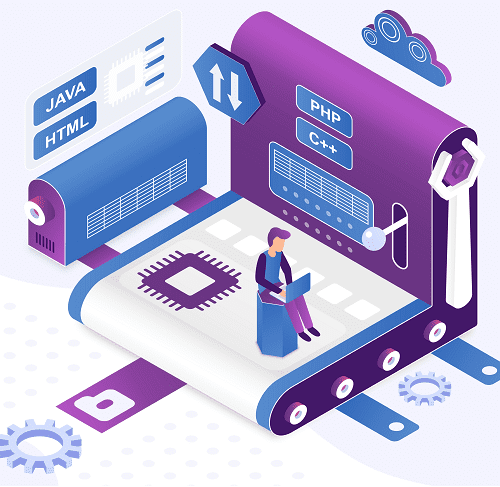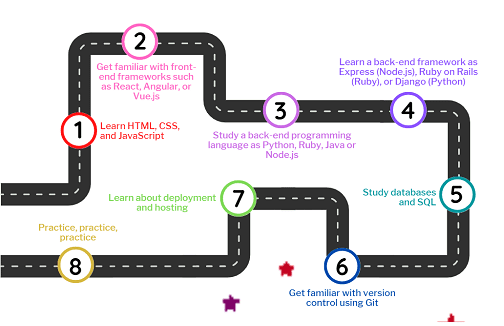Python is a high-level programming language that is widely used for a variety of applications including web development, machine learning, scientific computing, and automation.
Compared to other programming languages, Python has several advantages:
- Easy to Learn: Python has a simple and straightforward syntax that makes it easy to learn and understand, even for beginners.
- Versatile: Python is a general-purpose language that can be used for a variety of applications including web development, data analysis, and machine learning.
- Large Community: Python has a large community of developers who contribute to its development and provide support to users.
- Extensive Libraries: Python has a vast library of modules and packages that makes it easy to perform a variety of tasks, such as data analysis, machine learning, and web development.
- Cross-platform Compatibility: Python is compatible with a variety of operating systems, including Windows, Mac, and Linux.
In comparison to other popular programming languages, such as Java and C++, Python is generally considered to be easier to learn and use, but may have a slower performance. However, with the development of technologies such as PyPy, Python performance has improved significantly in recent years.
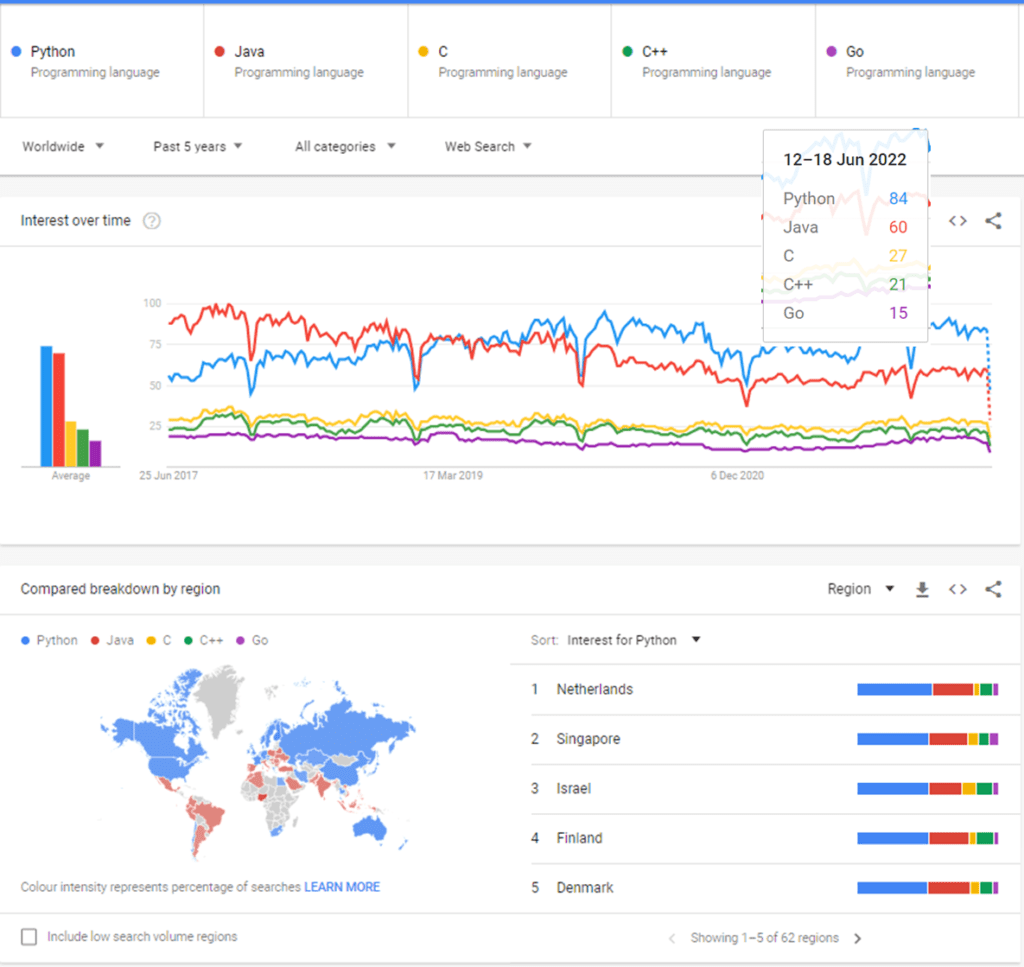
Ultimately, the choice between Python and other programming languages depends on the specific requirements of a project and the skills of the programmer.
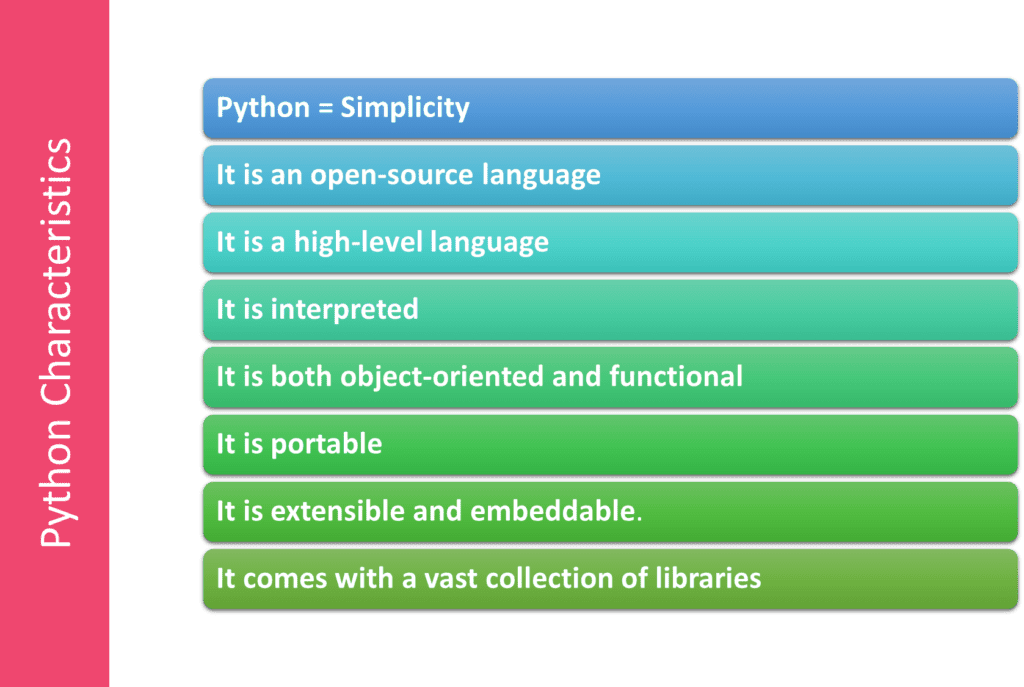
Python is a versatile language that can be applied in many different areas and industries. Most of the industries are using python nowadays. A list of 30+ use cases is mentioned below :
- Web Development (Django, Flask, etc.)
- Data Science and Machine Learning (NumPy, Pandas, Scikit-learn, TensorFlow, PyTorch, etc.)
- Automation and Scripting (e.g. automate repetitive tasks, data processing, etc.)
- GUI Development (e.g. PyQt, PyGTK, etc.)
- Game Development (e.g. Pygame)
- Scientific Computing and Visualization (e.g. Matplotlib, Seaborn, etc.)
- Network Programming (e.g. Twisted, asyncio, etc.)
- Artificial Intelligence and Natural Language Processing (e.g. NLTK, OpenCV, etc.)
- Financial Computing (e.g. Quantlib, PyAlgoTrade, etc.)
- Internet of Things (IoT) development.
- Cybersecurity and ethical hacking
- Education and Teaching (e.g. teaching programming, scientific computing, etc.)
- Geographic Information System (GIS) and Geospatial Analysis (e.g. Geopandas, Fiona, etc.)
- Image Processing and Computer Vision
- Web Scraping (e.g. BeautifulSoup, Scrapy, etc.)
- Blockchain and Cryptocurrency Development
- Mobile Application Development (e.g. Kivy, BeeWare, etc.)
- Text Processing and Text Mining
- Cloud Computing and DevOps
- Big Data Processing and Analytics.
- Enterprise Application Integration
- 3D Printing and Modeling
- Supply Chain Management and Logistics
- Virtual and Augmented Reality
- Audio and Video Processing
- Speech Recognition and Text-to-Speech Synthesis
- Ad-Tech and Digital Advertising
- Predictive Maintenance
- Fraud Detection and Prevention
- Customer Relationship Management (CRM) and Marketing Automation.
- Quantum Computing
- Chatbots and Conversational Interfaces
- Knowledge Management
- Electronic Design Automation (EDA)
- Healthcare IT and Medical Informatics
- Educational Technology
- Translation and Localization
- Gaming and Interactive Media
- Network Security and Penetration Testing
- Environmental Modeling and Simulation.

